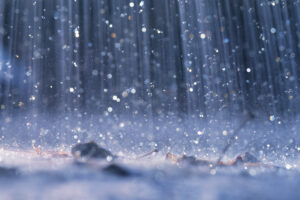
Excessive rain can pose a problem, potentially causing damage to your plumbing. Keep an eye out for warning signs!
Rain is often seen as a blessing, bringing life and vitality to our surroundings. However, excessive rain can pose significant challenges and even lead to issues or damage to plumbing. Let’s explore the various ways in which heavy rainfall can wreak havoc on plumbing systems and then provide practical tips to minimize the risk of plumbing issues.
Overloaded Sewer Systems
One of the primary concerns during heavy rainfalls is the overload of sewer systems. When rainwater accumulates faster than the sewer system can handle, it can lead to backups and overflows. This influx of water can overwhelm the sewer pipes, causing them to back up into homes and businesses. Not only is this unsanitary, but it can also cause extensive water damage and pose health risks to occupants.
Sump Pump Failure
Homes with basements are typically equipped with sump pumps to prevent basement flooding. However, during periods of heavy rain, these pumps can become overwhelmed and fail to keep up with the incoming water. This can result in basement flooding, causing damage to belongings and structural components of the home. Additionally, if the sump pump relies on electricity and there’s a power outage during a storm, it won’t be able to function, further increasing the risk of flooding.
Waterlogged Soil
Excessive rain can saturate the soil around your property, leading to soil erosion and instability. This can affect the stability of underground pipes, causing them to shift or break. Additionally, waterlogged soil can put pressure on pipes, leading to cracks and leaks. Over time, these issues can worsen and result in costly repairs.
Corrosion and Rust
Rainwater is not always pure; it can contain various contaminants and pollutants. When rainwater comes into contact with metal pipes, it can accelerate corrosion and rusting. This weakens the pipes over time, making them more susceptible to leaks and failures. Additionally, debris carried by rainwater, such as leaves and twigs, can get lodged in pipes, further exacerbating the problem.
Preventative Measures
Now that we understand the potential risks associated with excessive rain, let’s explore some preventative measures to minimize the likelihood of plumbing issues or damage:
- Regular Maintenance: Schedule regular inspections and maintenance for your plumbing system, especially before the rainy season begins. A professional plumber can identify any existing issues and address them before they escalate.
- Install a Backwater Valve: Consider installing a backwater valve in your sewer line to prevent backups and overflows during heavy rainfalls. This valve allows wastewater to flow out of your home but prevents it from flowing back in during sewer surges.
- Check Sump Pump Functionality: Test your sump pump regularly to ensure it’s in proper working condition. Clean out any debris that may be obstructing its operation and consider installing a battery backup or generator to ensure it continues to function during power outages.
- Proper Drainage Systems: Ensure that your property has adequate drainage systems in place to redirect rainwater away from your home’s foundation. This can include gutters, downspouts, and grading the land away from the building.
- Protect Outdoor Pipes: Insulate outdoor pipes to protect them from freezing during cold, rainy weather. This can prevent them from cracking or bursting due to expansion from freezing water.
Call Mahon Plumbing Today
If you still have more questions regarding your plumbing, we here at Mahon Plumbing are here to help. We have been serving the wider Baltimore area since 1994, so we have 25 years of experience to back up our fantastic service! Call us at our Baltimore location at 410-766-8566 or our Pasadena location at 410-636-7944. Be sure to keep up with us on social media by following us on Facebook or Twitter.
